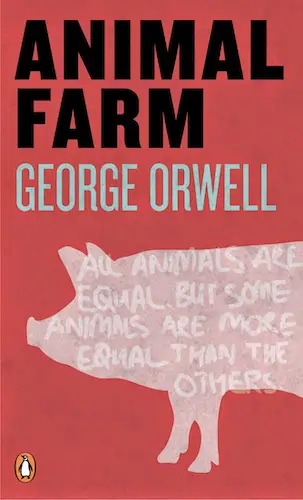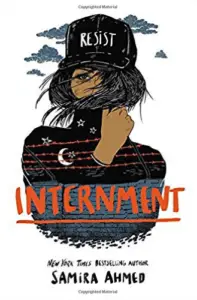Animal Farm
Book Author: George Orwell
Summary reviewed by:
Terrence Timmons
Terrence Timmons
Analyst
Bachelor of Arts (BA), University Of California, Santa Barbara 2019
With over 4 years of experience as an analyst. Terrence Timmons is committed to analyzing summaries without compromising on quality.
Animal Farm: Summary
Intriguing rebellion brews in "Animal Farm" by George Orwell, where barnyard beasts rise against their human oppressors, a tale ensnaring the heart in an old English farmstead, Manor Farm. Overburdened by the tyranny of the Farmer, Mr. Jones, the animals, under the insightful leadership of Old Major, a revered boar, dare to envision a revolution. They dream of a farm where all creatures are equal, free from human exploitation.
After the demise of Old Major, Snowball and Napoleon, two ambitious pigs, usher the revolution into fruition, ousting Mr. Jones in a surge of rebellion. The animals establish a harmonious community, initially thriving on the principles of Animalism, an egalitarian doctrine that underscores equality and fraternity. Seven Commandments, etched onto the barn wall, guide their newfound society, symbolising their unity and ambition for an ideal world.
Yet, the shimmer of Utopia fades rapidly as the pigs begin to mimic human behaviours. Napoleon and Snowball's rivalry intensifies, culminating in Snowball's expulsion. With Snowball gone, Napoleon unchallenged, subtly transfigures the utopian vision into a dictatorial regime, exploiting the animals’ credulity and igniting the farm's descent into a grim reality eerily reminiscent of their past. The farm spirals into a world where 'All animals are equal, but some animals are more equal than others.'
Spoilers (click here to reveal spoilers)
Animal Farm: Genres
Fiction
Political Satire
Dystopian Fiction
Allegorical Novel
Animal Farm: Main Characters
Old Major: An old boar whose vision of a socialist utopia serves as the catalyst for the rebellion. Represents the values of wisdom, inspiration and revolutionary ideals.
Snowball: A pig who champions intellect and progressive values, exemplified in his plans for the windmill and various committees.
Napoleon: Another pig who symbolizes the hunger for power, manipulating the animals’ trust to establish his dictatorship, evident in his alteration of the Seven Commandments.
Boxer: A loyal, strong, but naïve horse, who represents the exploited working class. His unquestioning belief in Napoleon, even when the pig betrays him, highlights his tragic flaw.
Squealer: A pig skilled in persuasive language and propaganda. He represents the role of media and propaganda in controlling the masses, demonstrated in his manipulative speeches to the animals.
Animal Farm: Themes
Corruption of Socialist Ideals: This theme becomes evident as Napoleon corrupts Old Major’s vision of Animalism, illustrating the dangers of absolute power.
Class Stratification: Despite the animals’ initial equality, the pigs elevate themselves into a ruling class, reflecting society’s inherent tendency towards class structures.
Use of Language as Power: Squealer’s persuasive speeches exemplify how language can be manipulated to control and oppress, shaping reality to serve the interests of those in power.
Betrayal: The animals are betrayed by the pigs, who promised equality but delivered oppression. Boxer’s tragic end is a poignant example of this theme.


Animal Farm
Date Published: August 17, 1945
Disclaimer: As an Amazon Associate I earn from qualifying purchases.




